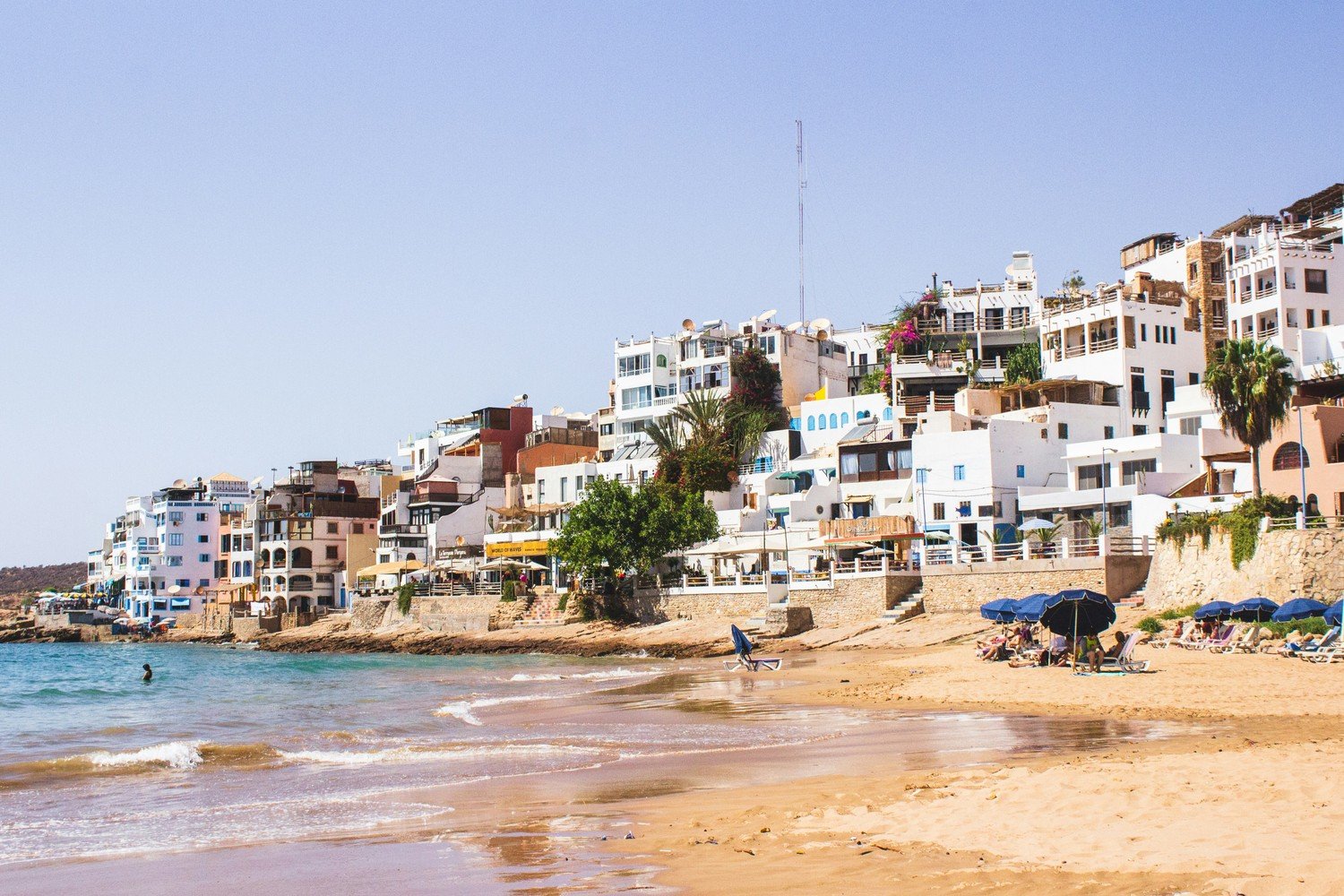
Destination or Hotel
Departure Airports
Travel Dates
Flexible +/-3 days
Nights
Flexible +/-3 days
Guests
Price Match Promise
Flexible +/-3 days
Price Match Promise

Travel Tunes: Traditional Music from Different Countries
By
Ricky Durrance
07 Apr 2020
Music has the wonderful ability to take us away from the here and now, transport us back to times we’ve had in the past and allow us to imagine experiences we might have in the future.
As physical travel is not possible right now, we’re going to introduce some world music we think you’ll love from some of the holiday destinations we offer. You might not be able to visit other countries at the moment, but with some help from the Teletext Holidays blog, at least you can experience different cultures from the comfort of your front room!
Traditional Music from Around the World
THE MUSIC OF GREECE
If you’ve ever been to mainland Greece or any of the Greek Islands, you’ll know that music is a huge part of the culture. Greek music is influenced by both the East and the West, which combine to create a distinct sound that forms the backdrop to everything from special occasions to everyday life.
There are four types of traditional Greek music:
1.DIMOTIKO TRAGOUDI (FOLK SONGS)
Greek folk music can be split into two musical movements: the akritic style, which dates back to the Byzantine Empire in the ninth century AD, and the klephtic style, which dates back to the Greek Revolution in the nineteenth century.
2. KANTADA
This romantic serenade music originated on the island of Kefalonia at the beginning of the nineteenth century and features three male voices in chorus, typically accompanied by a guitar or mandolin.
3. NISIOTIKA
These popular songs, born on the Greek Islands, are played in a variety of styles and often feature a violin, lyra, clarinet and guitar, accompanied by high-pitched female voices or the low voice of a single man. Every island has its own style of singing and dancing.
4. REBETIKO
This well-known style of modern Greek music emerged from underground Turkish-style cafes in the city of Thessaloniki in the 1920s. By the 1950s, it was played in the nightclubs of Athens. The principal instruments in rebetiko music are the bouzouki, the guitar and the baglama.
THE MUSIC OF PORTUGAL
Musically speaking, Portugal is best known as the home of fado, a passionate, expressive and profoundly melancholic form of singing that you can often hear in Portuguese pubs, cafes and restaurants. Originating in Lisbon and Coimbra, fado is characterised by longing and a feeling of loss; the loss is often permanent.
If you’re feeling glum, then perhaps it’s best to avoid fado and listen to something a little more lighthearted instead. However, if you’re ready to embrace all the torment, pour yourself a glass of port and have a listen to this:
THE MUSIC OF MOROCCO
Music is the ultimate expression of Moroccan culture. During a trip to Morocco, you can expect to hear ancient folk music from the Atlas Mountains, Arab- and Andalusian-inspired songs in the cities and roots fusion tunes blasting from taxis and cafes across the country.
1. BERBER MUSIC
The Berbers are the first known inhabitants of the northwestern corner of Africa. A typical scene of Berber music-making looks like this: entire villages gather to sing and dance outside, accompanied by drums and flutes. In Morocco’s Atlas Mountains, professional troupes of Berber musicians called imdyazn travel across the region and perform in village squares and in souks.
2. ARAB-ANDALUSIAN MUSIC
Morocco’s Arab-Andalusian classical music evolved more than 1,000 years ago in Moorish Spain and can now be heard throughout Morocco and across North Africa. This extremely structured style of music is performed by orchestras that feature the lute, fiddle, cello, piano and singers.
3. ROOTS FUSION
This is a more sophisticated style of chaabi (pop) music that emerged in the 1970s and combines traditional Berber music with elements of Western pop, rock, reggae and rap. It usually features the lute, percussion, banjos and electric guitars.
THE MUSIC OF ICELAND
For a country with a population of less than 400,000 people, Iceland has a remarkably rich musical identity and a vibrant contemporary music scene with a distinct character. Most people’s knowledge of Icelandic music stretches to Björk and perhaps Sigur Rós, but there’s so much more going on.
Iceland is famous for its heroic ballad poetry, known as sagas, which have been passed down through the centuries since the Viking Age. Sagas can be found in traditional Icelandic folk songs known as rímur, which fall somewhere between singing and chanting.
Some of the oldest songs still played in Iceland today can be traced back to the fourteenth century. They are typically folk songs about life at sea, love, harsh winters and mythical creatures such as elves and trolls. Due to the island’s isolation, musical influences from other countries didn’t reach it so quickly, which means traditional styles have lasted much longer and remained untouched.
Hákveða is a specific rhythm most Icelandic folk songs are sung to and remains one of the main characteristics of traditional music.
Traditional Music for Every Taste
So there you have it: an eclectic array of world music for many different tastes. From the melancholy of Portugal’s fado to the Arab-Andalusian classical music of Morocco, we hope you’ve found some tunes to take you on holiday for an hour or two and make life on lockdown a little more musical. If you need even more entertainment, don’t forget to keep checking out our blog for more ways to help you pass the time and scratch your travel itch.
40,000+ verified
customer reviews
Loading reviews...
Expert AdviceWhere to go & when

Millions of
happy customers

Over 30 years
travel experience

Triple Lock Protection
ATOL, TTA, Secure Trust


Low Deposit
from £49pp

24x7 in-resort
Support

ATOL & TTA
Protected

Pay monthly
Spread the cost
We want all our customers to stay safe when abroad. For the latest travel advice from the Foreign, Commonwealth & Development Office click here. Further advice can be found on the Travel Aware page here. Please note the advice can change so check regularly for updates and before you travel.
teletextholidays.co.uk acts as an agent in respect of all bookings made by telephone. For all bookings, your contract will be with the applicable Service Provider of your chosen Travel Service (who may be the principal or the agent of the principal) and Teletext acts only as an agent on their behalf. Your holiday will be financially protected by the ATOL scheme and you will receive an ATOL certificate once your booking has been confirmed. Please see our booking conditions for information, or for more information about financial protection and the ATOL Certificate go to:www.caa.co.uk/atol-protection
*We are able to offer a price match if suppliers are the same.
Teletext Travel Ltd, company number 14855829. Address: 71-75 Shelton Street, Covent Garden, London, United Kingdom, WC2H 9JQ.
Copyright 2025 teletextholidays.co.uk | All rights reserved.






